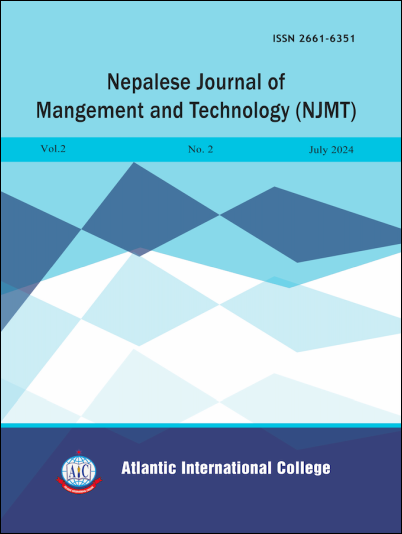Positive Psychology at Work: A Review of Concepts, Conceptual and Methodological Challenges and Future Research Directions
DOI:
https://doi.org/10.3126/njmt.v2i2.68717Keywords:
Positive psychology, employee well-being, positive organizational behavior, strengths-based approach, challenges in positive psychologyAbstract
The article examines the burgeoning field of positive psychology within organizational contexts. Positive psychology, which focuses on enhancing individual strengths and well-being rather than merely addressing weaknesses, has significant implications for workplace environments. The purpose of this review is to synthesize existing research on positive psychology in the workplace, identify conceptual and methodological challenges, and propose future research directions to overcome these obstacles. The methodologically it employed a comprehensive literature review of key concepts such as well-being, strengths, and positive organizational behavior. The article critically analyzes how these concepts are currently applied in organizational settings and highlights the difficulties researchers face in this field, including issues with measurement, cultural variability, and the practical integration of positive psychology principles into workplace practices. The article emphasizes the potential of positive psychology to transform organizational environments by fostering employee well-being and enhancing overall performance. However, the review also underscores the need for further research to address the identified challenges. The author calls for interdisciplinary approaches, more longitudinal studies, and the development of robust theoretical frameworks to better understand and implement positive psychology in the workplace. By addressing these gaps, future research can more effectively leverage positive psychology to create healthier, more productive organizational environments.
Downloads
Downloads
Published
How to Cite
Issue
Section
License
Copyright (c) 2024 Nepalese Journal of Management and Technology

This work is licensed under a Creative Commons Attribution-NonCommercial-NoDerivatives 4.0 International License.
This license enables reusers to copy and distribute the material in any medium or format in unadapted form only, for noncommercial purposes only, and only so long as attribution is given to the creator.




